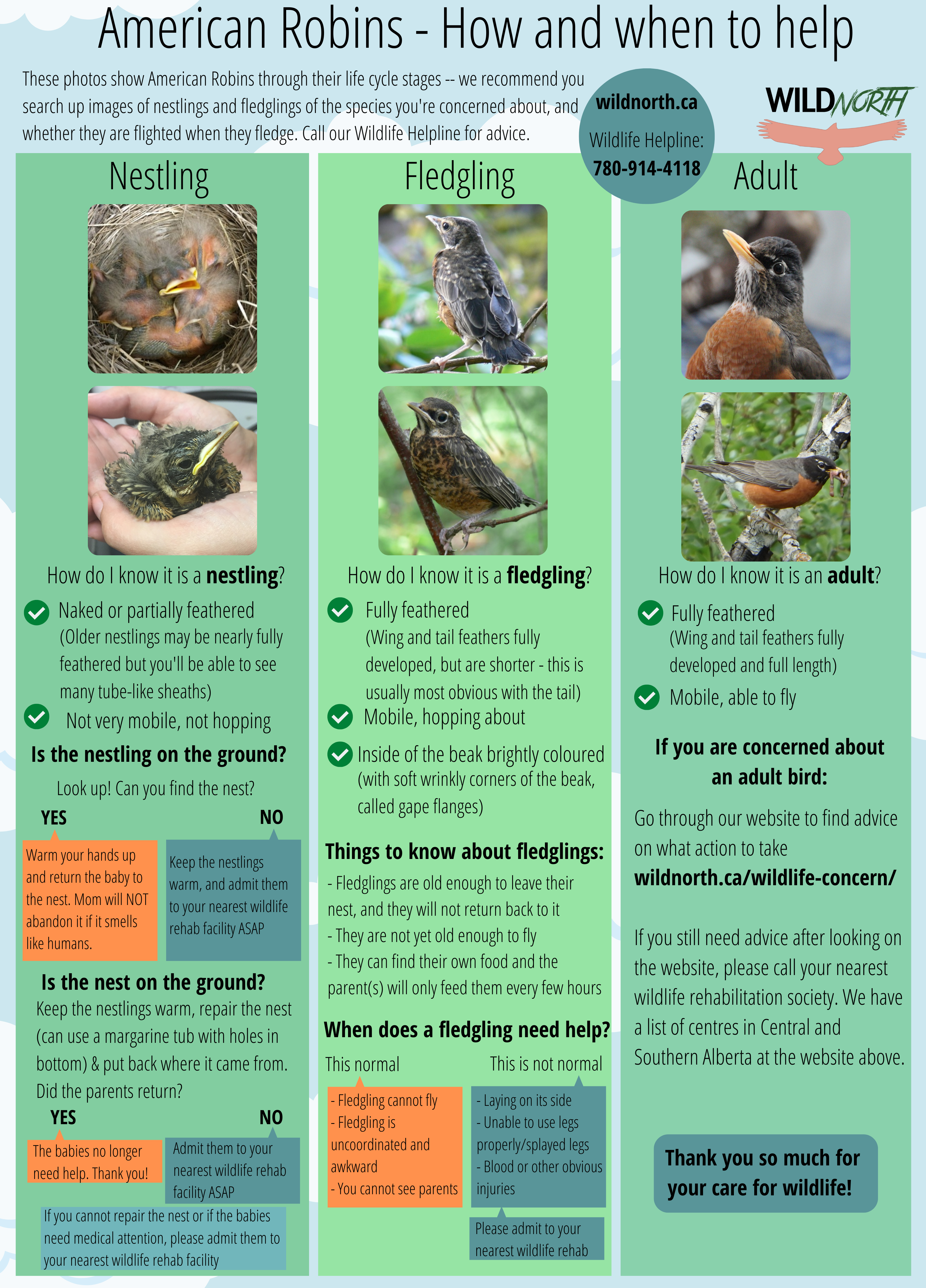The young of some bird species spend several days on the ground, practicing, before they are able to fly. It is at this time in their lives when most well-intentioned humans bring them to us.
Not all birds fledge the same way. While many species—like robins, crows, and magpies—leave the nest before they can fully fly and spend several days on the ground or hopping around on branches learning essential survival skills, others (like swallows) are fully flighted when they leave the nest. If you find a bird on the ground during spring or summer (May–August), it might be a fledgling going through a normal phase—or it might be a species that shouldn’t be grounded at all.
A healthy fledgling will be alert and active—hopping around, calling, and even trying to evade you if you approach. These birds are often doing just fine and are still being cared for by their parents. If the bird is lethargic, sitting still with eyes closed, quiet, or easily picked up without any resistance, it may be sick, injured, or orphaned—and likely needs help.
It’s important not to accidentally “kidnap” healthy fledglings. If you’re unsure, observe from a distance: are adult birds nearby, calling to or feeding it? These signs suggest it’s still under parental care. Be aware that feedings can be quick and spaced out (sometimes every 2–4 hours), so patience is key. A quick Google Image search of fledglings for that species can help you figure out if the bird should be fully-flighted when they leave the nest, or even better—call our Wildlife Helpline (780-914-4118) and send a photo. We’re happy to help identify the bird and determine if it needs rescue.
If the bird is in immediate danger (e.g. a cat is stalking it), it’s okay to gently move it to a nearby shrub or low tree branch for safety. However, we generally cannot admit a baby bird just because there’s a risk of predators like cats or dogs—these are challenges they must learn to navigate. That said, you can absolutely advocate for pet owners to keep cats indoors and monitor dogs during baby bird season!

